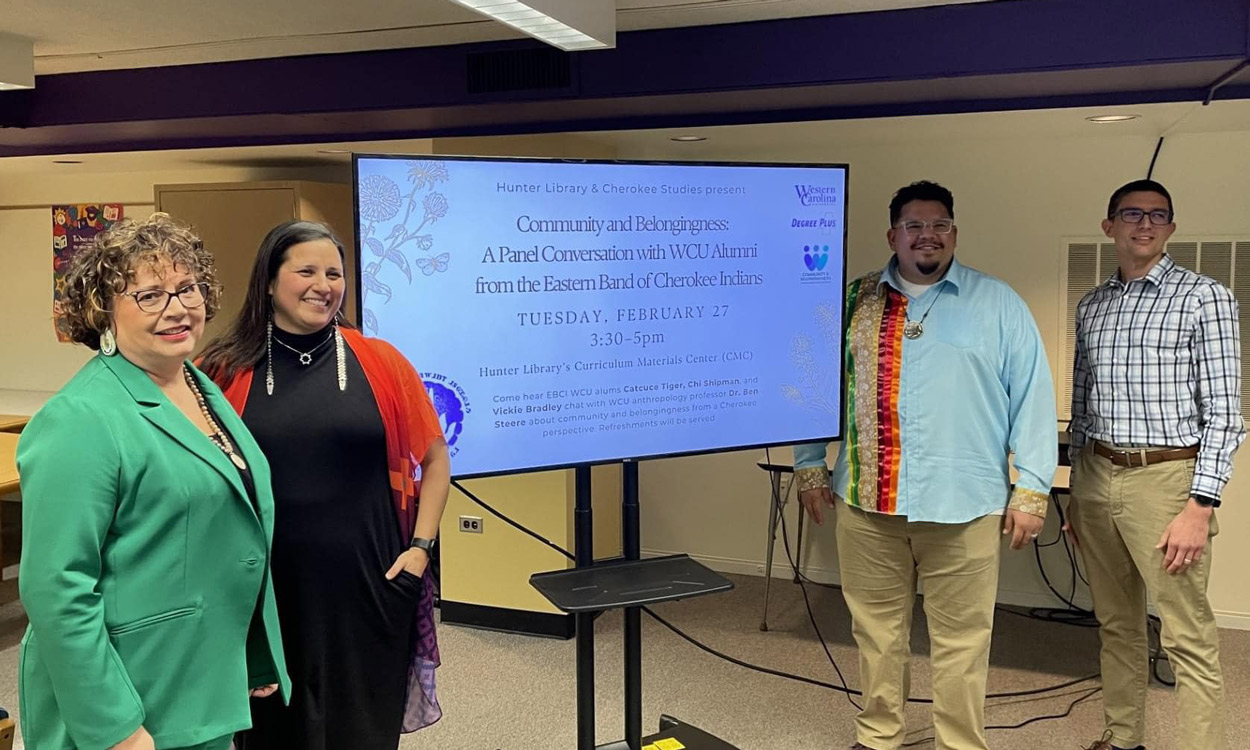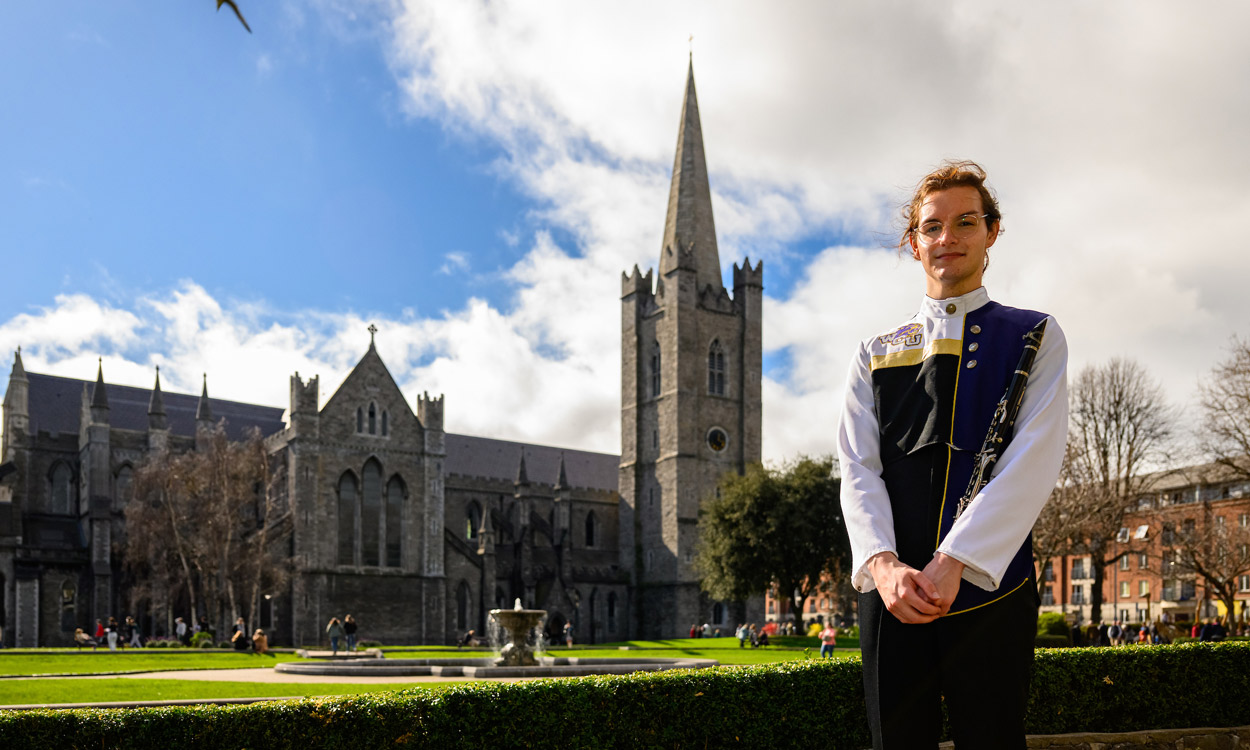Music professor to pay homage to fallen WWI soldiers through 'Last Post' bugle tribute
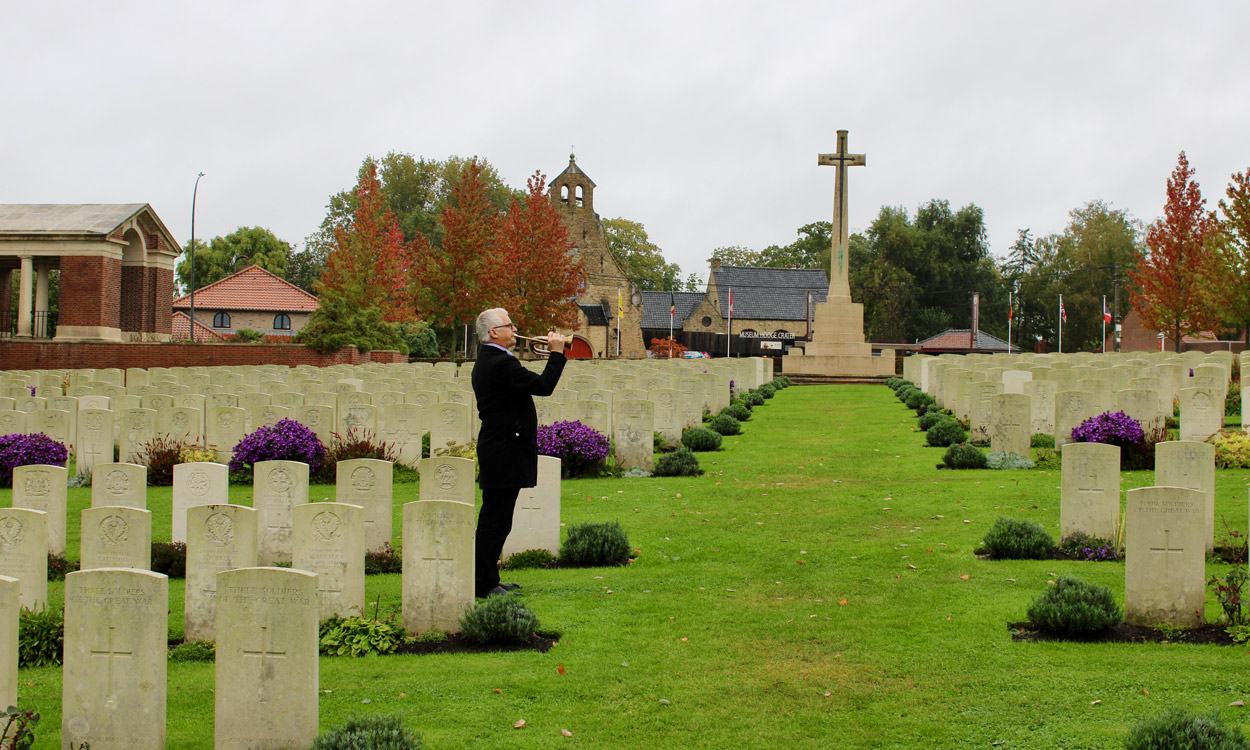
By Julia Duvall
In the West Flanders region of Belgium, there are several thousand graves of British Commonwealth soldiers who never made it home from World War I.
Western Carolina University School of Music professor and amateur history buff, Brad Ulrich, will pay homage to the fallen soldiers by performing the poignant bugle call, “The Last Post” at every Commonwealth cemetery within the Ypres Salient, which was a major part of the Western Front during the Great War.
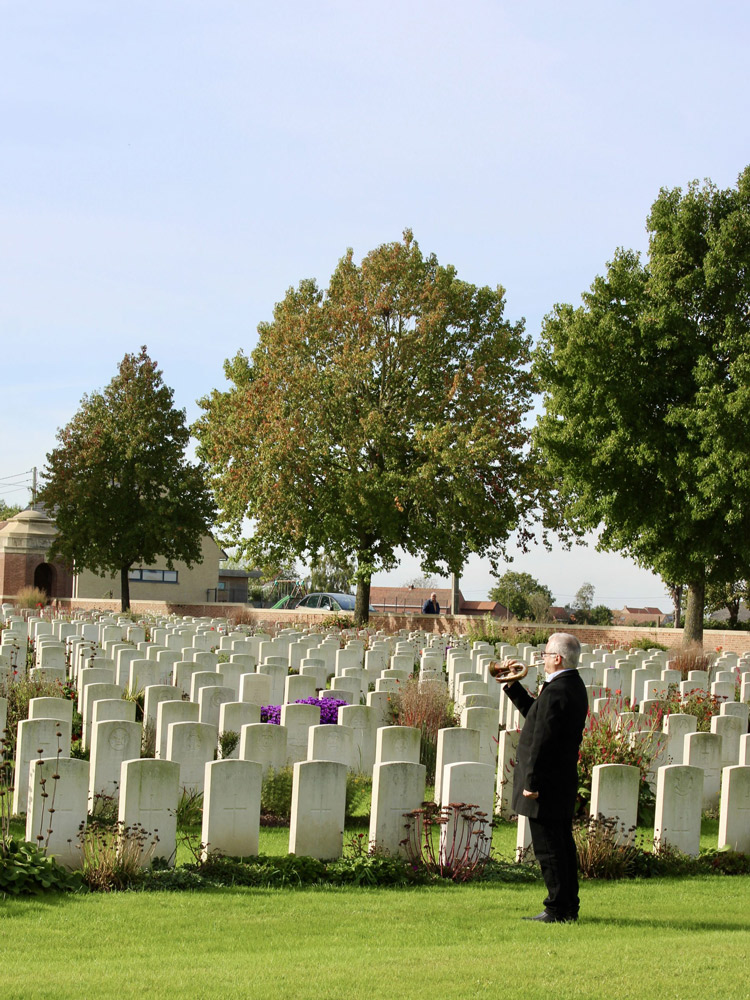
Ulrich plans to complete his two-year project in October by playing at 70 more Commonwealth War Graves Commission cemeteries.
“During World War I, Commonwealth policy stipulated that soldiers would be buried where they fell instead of being returned home,” Ulrich said. “As a result of this policy, many families worldwide are unable to visit their relative’s graves from this period.”
The intent of this project, which Ulrich started in 2023, is to allow families of the fallen to hear and see the “Last Post” being performed at their relative’s cemeteries.
“I am honored to embark on this project which uses the power of music to honor the sacrifices made by those who gave their all for a better tomorrow,” Ulrich said.
Ulrich became interested in this subject while watching a 10-part series about the war.
“I was struck by the fact that I did not know anything about World War I, despite always being interested in history,” Ulrich said. “This has led me down a path to becoming a collector of the militaria, a frequent visitor to the battlefields in France and Belgium, and an obsessed reader on the subject.”
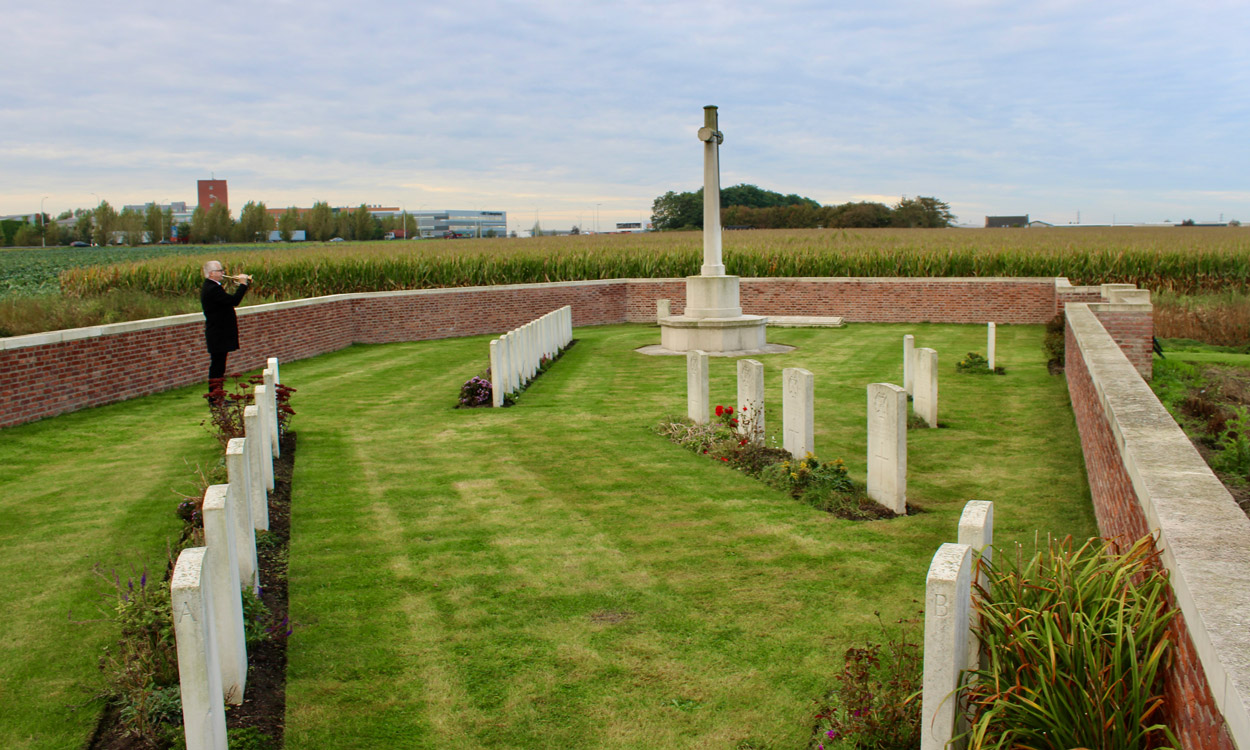
Ulrich’s first trip to the Western Front occurred in October 2018 with his English father-in-law.
“Bernard, who has lived and worked in the United States for the past 55 years, met me at the Brussels airport in Belgium,” Ulrich said. “Being interested in genealogy and WW1 history, he joined me on the trip so that he could show me around the Ypres and Somme battlefields. While visiting four of Bernard’s relatives’ cemeteries, I observed the emotion Bernard displayed while standing with his hand on the gravestone or touching the etched names of his relatives on the memorial walls.”
When Ulrich returned home, he made a framed tribute for his father-in-law that included the photos of him at the cemeteries, details about each of the soldiers and an authentic cap badge from each of their regiments.
Ulrich then learned of the British Commonwealth policy stating that no soldiers could be brought home and had to be buried where they perished.
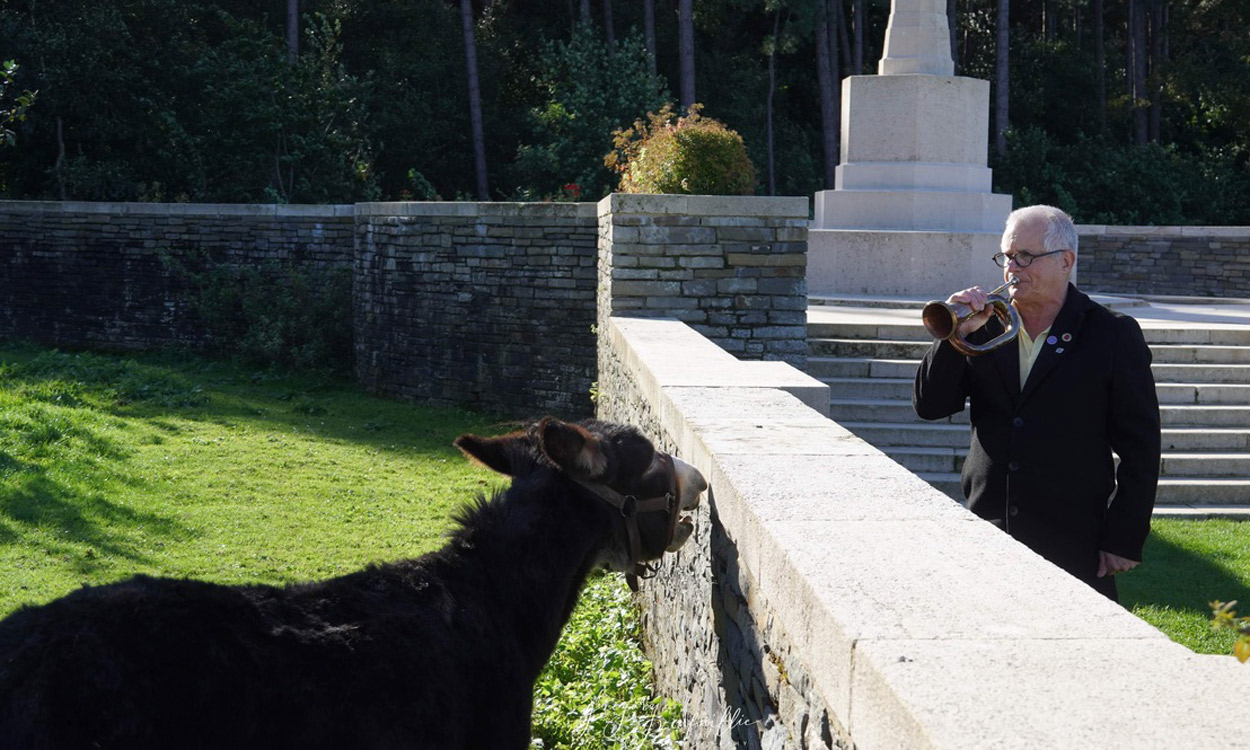
“Some of the reasons for this policy included the nearly impossible task of sending bodies home with the unfathomable amount of war supplies going the opposite direction to the battlefields, concerns about the negative effect on morale with the vast amount of caskets returning home, and the enormous monetary cost that would be put on the Commonwealth,” Ulrich said. “While the government could have asked the public to pay for the cost of returning their relative’s body, many could not afford to do so, therefore, no family was allowed to bring their deceased relative home.”
The thought of families not knowing where their soldier was buried or being unable to make the trip over to visit the site bothered Ulrich over the years.
“I wanted to do something for the families and also to honor the incredible volunteerism of the people of Ypres who pledge that these soldiers would never be forgotten, so I created my Bugles Across Flanders project,” Ulrich said.
Through the website, relatives of the fallen soldiers can see and hear the “Last Post” and “Rouse” at their relative’s cemetery, performed by Ulrich on an authentic World War I bugle.
